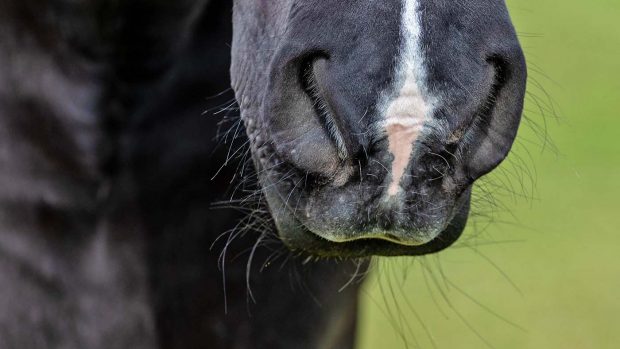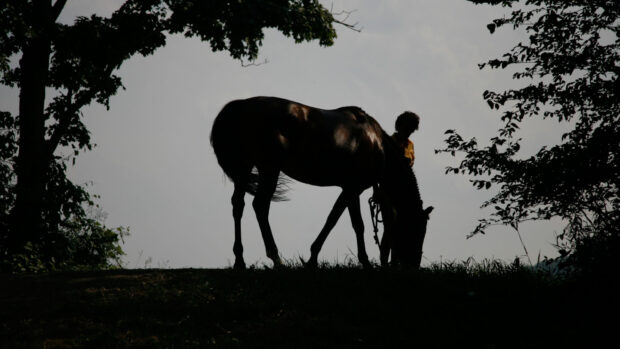Researchers have identified genomic markers in horses who have a condition that prevents them from sweating.
In a study published by the Journal of Investigative Dermatology, the team from the University of Florida’s Genetics Institute and the College of Veterinary Medicine aimed to discover more about chronic idiopathic anhidrosis (CIA), a condition that affects a horse’s natural cooling mechanism and can cause performance and health issues.
The study looked at 172 samples from horses in the United States including thoroughbreds, warmbloods and “stock-type” breeds such as American quarter horses.
The researchers extracted DNA from the samples and used genetic markers to look for the common genomic markers found in horses that had CIA. A genetic marker is a gene or DNA sequence with a known location on a chromosome that can be used to identify individuals or species. The researchers concluded the markers pointed to defective potassium channels that “likely hinders” sweat function.
Lead researcher Laura Rosa told H&H sweating is important for horses’ thermoregulation.
“In humans who have anhidrosis they can go into a room with air conditioning, but not everyone can afford an air-conditioned stable,” she said.
“When a horse has anhidrosis they can overheat, and this might lead to shock. Horses with the condition tend to overheat just by standing in the field and they can have a hard time in their normal day-to-day life. We don’t understand why some horses have it worse than others. Even if it is chronic, the severity differs.”
Dr Rosa said while horses are more at risk in hot, tropical climates, those in cooler parts of the world can also be affected.
“I think there are a lot of horses out there struggling to live with the early stages of this disease, but owners and caretakers are just not aware of it. Both chronic and acute anhidrosis are frequently recognised in many non-tropical regions, especially temperate climates with a sudden onset of hot and humid summers,” she said.
University of Florida associate professor of equine physiology Samantha Brooks added that now that the researchers know which biological pathways cause the condition, they hope to design “specific strategies” to intervene.
“We found that this disease has similarities to cystic fibrosis, which has many drug treatments available and in development. Knowing this, we can start to consider ways to treat these horses that suffer from this condition, helping them sweat more normally over longer periods of time,” she said.
“The saddest part about this disease is that we do not have any specific way to treat the condition. We can see what is happening and try to address the symptoms but because we do not know exactly what is causing it, we cannot attack the disease. So far, no supplements or medications have been tested and proven to work in a scientific study.”
You might also be interested in:
Study shows many are using side and draw reins wrongly

Body image a significant issue for riders, study finds

Subscribe to Horse & Hound magazine today – and enjoy unlimited website access all year round
Horse & Hound magazine, out every Thursday, is packed with all the latest news and reports, as well as interviews, specials, nostalgia, vet and training advice. Find how you can enjoy the magazine delivered to your door every week, plus options to upgrade your subscription to access our online service that brings you breaking news and reports as well as other benefits.




